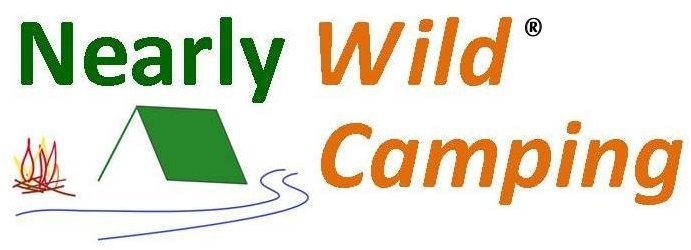Introduction
Low impact camping is leaving a place with no sign to suggest that you have been there. Yes you may have flattened some grass but that will recover within a short time.
- Leave no trace – The Seven Principles
- Plan Ahead and Prepare
- Travel and Camp on Durable Surfaces
- Dispose of Waste Properly
- Leave What You Find
- Minimize Campfire Impacts
- Respect Wildlife
- Be Considerate of Other Visitors
In general
- Bring less waste in the first place: buy less-packaged items, re-pack what you can, and remove packaging from new items you bring.
- Pack out what you pack in: don’t rely on items to biodegrade, no matter what the label may promise, it is likely to take much longer and have a negative impact if you just toss them aside or leave them behind–ALWAYS PACK IT OUT!
- Car share when possible if not walking or cycling from home
Deciding on the best place to camp
- Least impact on the habitat (hard ground, proximity to water, wildlife paths (may be in your interests too – snakes, hippos! etc.)
- Think about impacts both short and long term
- Where does wildlife live (under rocks etc)? What is native to the area? What are the locally fragile habitats.
- Fires and peat, firewood sources etc.
- Longer term ecological impact
Reusable over Disposable
- Bring reusable water bottles and refill from a safe water source if there is one, or a larger container of drinking water.
- Skip the paper plates and napkins and bring sturdy reusables instead.
- Reduce rubbish by buying food in bulk or larger packages instead of wasteful individual packages.
- Bring reusable containers for leftovers to reduce food waste.
Eco-Friendly Clean Up
- Bring biodegradable soap for dishwashing.
- Set up a dishwashing and rinse station to reduce water use.
- Use naturally-based shampoo and other personal cleansing products.
- Protect the waterways. This is a very important step in environmentally sound camping. Never dig your latrine closer than two hundred feet to any waterway, even a small stream that appears to be mostly underground.
- Do all washing from the same distance. Avoid getting soap into the waterway system because not only is it a pollutant but animals drink from the same waterways that you are bathing in. This can cause much harm to wildlife since they have not been exposed to such chemicals like our own family pets have been. These wilderness animals possess a much more delicate system than the animals we have contact with on a daily basis.
Pack it in, Pack it Out
- Pack out all waste, including food scraps. Non-native foods impact – Banana peel, orange skins etc.
- Take all recyclables home with you (unless the campsite has a recycling station).
- Bury any spilled food or human/pet waste.
Leave No Trace
- When you leave, the campsite should look exactly like it did when you arrived. No exceptions!
- First, keep your group small. The smaller the better because this means that your campsite will not be trampled down or over used.
Visual impact
- Colourful camping gear may have caught your eye in the store but consider the role it serves on the trail/camping ground. Sometimes it’s important for safety. Animals will see you before you see them and colourful camping gear can and usually be offensive to others who are nearby. Most have noticed while in the wilderness a campsite dotted with florescent tents invading the area. They are out of place and do not belong and are a great distraction to many, so avoid them if you can.
Respect Wildlife
- Leave rocks, plants and other natural objects as you find them.
- It’s exciting to see wildlife while adventuring outside, but it’s best to keep a distance from the animals. Don’t follow, approach, or take selfies with them. Feeding wild animals can damage their health, change their behaviour and expose them to predators. Keep wildlife out of your personal rations by properly storing food and rubbish.
Clean up more than your share and help educate others about low-impact ethics. Keep it up, and future generations will be able to enjoy all of the nature we have.
